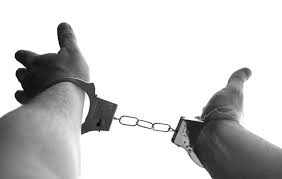Jumping bail or failing to pay your share can have dire consequences. You run the danger of more than simply losing your collateral or bail money if you fail to appear in court. This article will go over the meaning, punishment, justifications, and defenses of jumping bail and whether or not you can bail yourself out of jail.
What is Bail Jumping?
Bail jumping is a legal practice where a person skips court and fails to appear within a specified timeframe. It may be necessary to wait a particular amount of time before charging defendants with crimes. Some states don’t provide a grace period and criminalize failing to appear in court without good reason. While some states stipulate that any type of charge is sufficient, others limit the offense of bail jumping to situations in which the offender is facing felony charges related to the ongoing case.
What Would Happen If Missing Court Was an Accident?
In most states, the prosecution must prove that the defendant intentionally or knowingly missed court. The defendant must prove they were aware of the court appearance and did not attend, whether by accident or not. Though courts retain copies of these notices, you may have a defense if you were not informed of the hearing.
The defendant may receive notice via letter or included in the bail bond terms, depending on the jurisdiction. Usually, trying to convince the court that the notification was lost in the mail is ineffective.
What Is the Punishment for Bail Jumping?
After being brought into jail on criminal accusations, you will receive a court date for your bond hearing. You still have to show up for subsequent court appearances, even if the judge sets a bail amount and you post the entire amount on the designated date.
Jumped bail occurs when an individual fails to attend scheduled court appearances during the bail hearing without a plausible explanation. You might therefore be subject to severe penalties under both federal and state law. This post outlines the principal sanctions for bail jumping in the United States.
Lose Your Bail Money
Defendants must abide by the requirements outlined in bail agreements to receive their money back. If you miss a scheduled bail hearing court date without a good explanation, you risk forfeiting your whole bond amount. Whether you are guilty or innocent, the court may take it all, even if it’s just for one session and you post a hefty bail amount.
Arrest Warrant
Lateness for the initial bail hearing without a valid reason may lead to leniency from the judge and a pardon. If you fail to answer during the second hearing, the court may issue a warrant for your arrest. Local and regional police will immediately observe and arrest you.
No More Bail-Out Options
Despite having a constitutional right to a bail hearing, there is no guarantee that a judge will grant your request. In bail proceedings based on the risk level of the defendant, the courts have the last say.
If you were initially granted bail but violated the terms by skipping court appearances, you are considered a high-risk individual. If you are arrested again, as a high-risk individual, you might not be eligible for bail in the future.
Increase Current Fees
If you miss a bail hearing and are already facing significant accusations for a crime, you may face even more serious consequences. If you are found guilty of a crime, the judge may impose further penalties, such as missing bail hearing charges.
Depending on the seriousness of your original offense, this could result in even more dire penalties for you. For instance, you can be fined more or go to jail longer for jumping bail if you committed a first-degree felony as opposed to a third-degree one.
Justifications and Defenses for Skipping Court
A defendant’s justification for missing court and maybe for not surrendering afterward may or may not be considered a defense, depending on the jurisdiction and facts of the case. The argument that the defendant’s nonattendance was due to uncontrollable circumstances is frequently a legitimate one. A hospital stay or auto accident could be deemed uncontrollable by a judge. However, juries have disregarded drug-related and drunkenness-related justifications as well as flimsy medical arguments.
In some states, missing mandatory court appearances due to being jailed in another jurisdiction is not an acceptable reason. And you’ll need to arrange for a ride if your car breaks down.
Can You Bail Yourself Out of Jail?
Both yes and no. You can post bail on your own and serve as the only cosigner if you have the funds available to cover the full amount at the time of your arrest. The catch is that bail is a cash bond; therefore, to be freed, you need to have the entire sum on hand. You probably won’t have all of the bail money at your disposal in cash because the amount of bail varies based on the crime. But don’t worry—it happens very infrequently for someone to post a bond by themselves. There is assistance available to help you achieve freedom, so you are not alone.
FAQs
What does jumping bail mean?
A prisoner who jumps bail is one who, after being released on bond, fails to appear for their trial.
In what circumstances is bail granted?
The available proof against the defendant is – the evidence used against you may be examined by the court if you are a suspect. The accused’s suitability to face trial If there’s any reason to believe that you won’t follow court instructions to appear, your bail request can be turned down.
What is the term for bail?
Bail is a term that refers to bond money. This word originates from the Middle English word Bayle, which means “captivity.” The verb “bailing out” derives from the later word baile, which means “dipping out” in practical terms. This meaning is useful when attempting to empty something that has flooded.
If a person in Texas is unable to post bond, how long will they remain in jail?
A monetary guarantee known as bail is used to make sure you show up to court appointments. You will probably have to remain in jail until your case is resolved, which could take months or even years if you are unable to pay your bail or arrange for someone to post a bond on your behalf.
Bail Jumping: Conclusion
If you skip bail, it could hurt everyone involved in your case as well as your own life. You might get arrested, have your bail applications denied in the future, lose money, and have to pay the bail bondman money, to name a few penalties. In addition, the stress of skipping bail could have detrimental effects on your health. For this reason, you should never post bail unless you have a compelling cause.
See a nearby criminal defense lawyer if you’ve been accused of jumping bail or if you skipped your court date and are unsure of what to do. A skilled attorney can provide you with advice regarding the relevant legislation, customs in the area, and the best course of action. They can also tell you whether turning yourself into the police or the court will help you avoid being charged with bail jumping.



